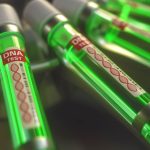Importance of Daily Water Intake
Here are the reasons why drinking enough water daily is crucial for us:
1. Transporting Nutrients and Oxygen
Water is critical in transporting essential nutrients and oxygen to cells throughout the body, ensuring every organ and tissue has access to the resources it needs to function efficiently.
2. Bladder Health
Ensuring you are properly hydrated is crucial in maintaining a healthy urinary system. This is because when you are adequately hydrated, you can flush out harmful bacteria from your bladder, which in turn helps prevent possible urinary tract infections. Therefore, you must ensure you drink enough water and other fluids throughout the day to support your urinary health.
3. Digestive Support

Water consumption plays a crucial role in digestion by facilitating the breakdown of food particles and promoting the efficient absorption of essential nutrients in the digestive system. This vital fluid helps to lubricate the digestive tract, which enables food to move smoothly through the stomach and intestines, promoting the proper functioning of the digestive organs. Additionally, water helps flush out waste products and toxins from the body.
5. Blood Pressure Normalization
Maintaining an appropriate water balance within the body is paramount to ensure blood pressure regulation. This factor plays a vital role in maintaining cardiovascular health.
6. Stabilizing Heartbeat
Keeping your body well-hydrated by drinking enough water is crucial to maintaining a stable heartbeat and ensuring proper cardiovascular function. Water is critical in helping your heart pump blood efficiently throughout your body, maintaining healthy blood pressure, and preventing heart-related issues.
7. Joint Cushioning
Adequate hydration is imperative for optimal joint health, as it provides the lubrication and cushioning necessary to prevent discomfort and support proper joint function. Without proper hydration, joints may become stiff and painful, leading to decreased mobility and a diminished quality of life. Therefore, it is crucial to prioritize hydration to promote healthy joints and overall well-being.
8. Organ and Tissue Protection
Ensuring that your body receives an adequate amount of water is crucial to maintaining healthy organs and tissues. Water is vital in supporting overall organ function and preventing dehydration-related stress on tissues.
9. Temperature Regulation
The role of water in regulating body temperature and preventing overheating cannot be overstated. This essential element is instrumental in maintaining a healthy and functional body, ensuring that we remain cool and comfortable in even the hottest conditions.
10. Electrolyte Balance Maintenance
Maintaining the right balance of electrolytes, particularly sodium, in the body is crucial to guaranteeing the proper functioning of nerves and muscles. This balance is maintained through water intake, which is essential for replenishing and regulating electrolyte levels in the body. Without adequate water intake, electrolyte imbalances can occur, leading to various health issues and complications.
11. Key Functions in the Body
The human body relies heavily on water to perform a wide range of vital functions, underscoring the critical significance of this precious resource for overall health and wellness. Indeed, water plays a crucial role in numerous essential bodily processes beyond those already noted, emphasizing its indispensable nature.
Balancing Water Consumption

Maintaining a balance in your water consumption is essential, as too little and too much can negatively affect your health. While dehydration can harm your body, overhydration can put pressure on your kidneys and saturate your cells. A good rule of thumb is to drink six cups of water daily, evenly spaced out throughout the day. However, larger individuals or men may require more than six cups, so increasing intake to eight cups may be necessary. For those who are exercising, adding another two cups can be beneficial. Keep in mind that individual needs may vary, but following these general guidelines can be helpful.
Diverse Sources of Hydration
According to the Harvard Health Report, staying hydrated is vital for your health, and it’s not just water that can help. Any beverage that contains water can contribute to your daily fluid needs. It’s a common misconception that caffeinated or alcoholic drinks can dehydrate you because they make you urinate. However, over the course of the day, the water in these drinks still provides a net positive contribution to your total fluid intake.
That being said, there are good reasons why water is still the preferred choice. Drinks with added sugar can lead to weight gain and inflammation, increasing your risk of developing diseases such as diabetes. Consuming excessive caffeine may cause jitters and disrupt sleep, while women should limit alcohol intake to one drink per day and men to 1-2 drinks per day.
To stay hydrated, consuming fluids gradually throughout the day is essential. A simple method is to have a drink with each meal, during social events, or when taking medication. Keep in mind that you can also obtain fluids from water-rich foods such as salads, fruits, and applesauce.

It’s crucial to ensure you consume enough fluids, regardless of how you obtain them, as it can make a significant difference. While drinking with meals, try to prioritize water as your primary source of fluids. If you’re exercising, consume additional fluids, such as water or sports drinks with electrolytes. Lastly, ensure you distribute your fluid intake evenly throughout the day. Loading up on fluids early and hoping it lasts doesn’t work.
Frequently Asked Questions
Is it Possible to Drink Too Much Water?
Yes, it is possible to drink too much water. It’s important to maintain a balance of electrolytes in the body, and excessive water intake can disrupt this balance, leading to a condition known as hyponatremia. While this condition can be dangerous, it’s relatively uncommon. It highlights the need to pay attention to individual needs and balance water consumption accordingly.
Should I Drink More Water When Exercising?
Yes, it is essential to drink water while exercising because your body loses water through sweat. To replenish this loss, the American Council on Exercise suggests drinking 17-20 ounces of water 2-3 hours before exercising, 8 ounces 20-30 minutes before, and 8 ounces every 10-20 minutes during exercise.
Does the Water Content in Food Count Toward My Daily Intake?
Yes, the water content in food counts toward my daily intake. Foods that are rich in water, like fruits, vegetables, and soups, play a significant role in keeping you hydrated. Although it’s not a replacement for drinking water, consuming these types of foods regularly will help you stay hydrated and increase your daily fluid intake.
Learn from Renowned Medical Coach Dr. Bart Rademaker

Recognizing the indispensable role of daily water intake in supporting a myriad of bodily functions underscores the importance of prioritizing hydration for optimal health. As we navigate the complexities of balancing hydration, it becomes evident that personalized guidance is invaluable.
This is where renowned medical coach Dr. Bart Rademaker, your dedicated partner in holistic health, steps in.
Our expert medical coaches are committed to empowering you on your wellness journey. From personalized hydration plans to tailored strategies for maintaining a healthy lifestyle, we strive to guide you toward sustainable well-being. Remember, it’s not just about the quantity of water but also the quality of guidance you receive.
Embark on a transformative experience with Dr. Rademaker, where your health is our priority. Together, let’s hydrate, thrive, and elevate your well-being. Because when it comes to your health, having a dedicated coach makes all the difference.
- Dr. Bart Rademaker
- 813-884-0160
- [email protected]
- 334 East Lake Road Palm Harbor, Florida 34685


